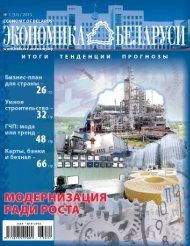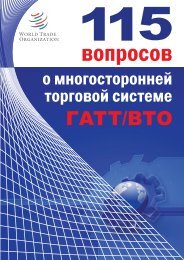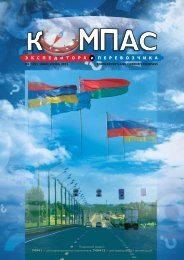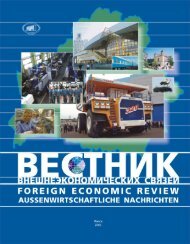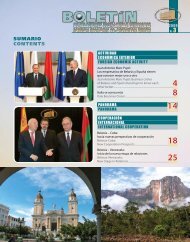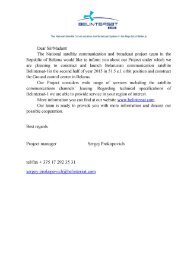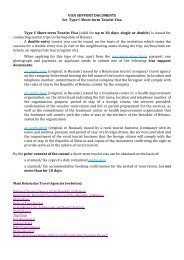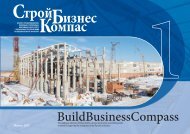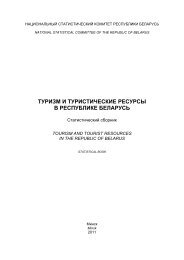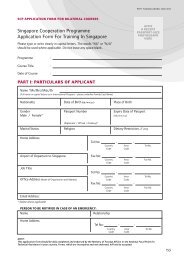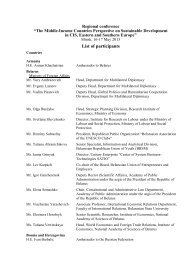Human Development Report 2013 - UNDP
Human Development Report 2013 - UNDP
Human Development Report 2013 - UNDP
You also want an ePaper? Increase the reach of your titles
YUMPU automatically turns print PDFs into web optimized ePapers that Google loves.
A fair and less unequalworld requires space for amultiplicity of voices and asystem of public discourseSouth–South trade and investment can reducevulnerability to economic downturns in theNorth and provide opportunities to leverageforeign markets in new ways.Regional trade and investment relationshipscan also be strengthened by streamliningtransit, transport and customs procedures;harmonizing regulatory schemes; investing inregional transport infrastructure; and loweringtariffs on South–South trade in final products.Lowering such tariffs could yield collectivegains of an estimated $59 billion for the economiesof the South. 51A new South Commission for the early 21stcentury could help bring a fresh vision of howthe strength and diversity of the South can bea global force for development solidarity. Thekey elements are there: different endowmentsprovide a basis for expanded exchange, diverseexperiences are ripe for sharing, new cross-borderpartnerships can compete in world marketsand, above all, the recognition and implementationof win-win strategies can motivate newforms of South–South cooperation.Greater representation for the Southand civil society can accelerateprogress on major global challengesThe rise of the South is leading to a greaterdiversity of voice on the world stage. Thisrepresents an opportunity to build governanceinstitutions that fully represent all constituenciesthat would make productive use of this diversityin finding solutions to world problems.New guiding principles for internationalorganizations are needed that incorporate theexperience of the South. The G20 incorporatestheir experience, but the countries of the Southalso need more-equitable representation inthe Bretton Woods institutions, the UnitedNations and other international bodies.Active civil society and social movements,both national and transnational, are using themedia to amplify their calls for just and fairgovernance. The spread of movements and increasingplatforms for vocalizing key messagesand demands challenge governance institutionsto adapt more-democratic and more-inclusiveprinciples. More generally, a fair and less unequalworld requires space for a multiplicity ofvoices and a system of public discourse.The rise of the South presentsnew opportunities for generatinga greater supply of public goodsA sustainable world requires both better governanceand a greater availability of globalpublic goods. Global issues today are increasingin number and urgency, from mitigation ofclimate change and international economicand financial instability to the fight againstterrorism and nuclear proliferation. Theyrequire a global response. Yet in many areas,inter national cooperation continues to beslow—and at times dangerously hesitant. Therise of the South presents new opportunities forproviding global public goods more effectivelyand for unlocking today’s many stalematedglobal issues.“Publicness” and “privateness” are in mostcases not innate properties of a public goodbut social constructs. As such, they represent apolicy choice. National governments can stepin when there is underprovision at the nationallevel, but when global challenges arise, internationalcooperation is necessary and can happenonly by voluntary action of many governments.Given the many pressing challenges, progress indetermining what is public and what is privatewill require strong, committed, personal andinstitutional leadership.* * *The rise of the South is fundamentally thestory of the fast-paced transformation of thedeveloping world and its profound impacton diverse facets of human development.Global discussions of this phenomenon so farhave focused almost exclusively on economicgrowth in the biggest developing countries.This <strong>Report</strong> uses a human development lensto cast a wider net and show that the impactsare widespread in terms of the large number ofdeveloping countries involved and the intertwiningof ever-growing global challenges andpossibilities—from environmental sustainabilityand equity to poverty eradication and thereform of global institutions. The changes areoccurring at unprecedented speed and scale,propelled by interaction with the wider worldthrough trade, travel and telecommunicationsin ways that were not possible before.122 | HUMAN DEVELOPMENT REPORT <strong>2013</strong>



